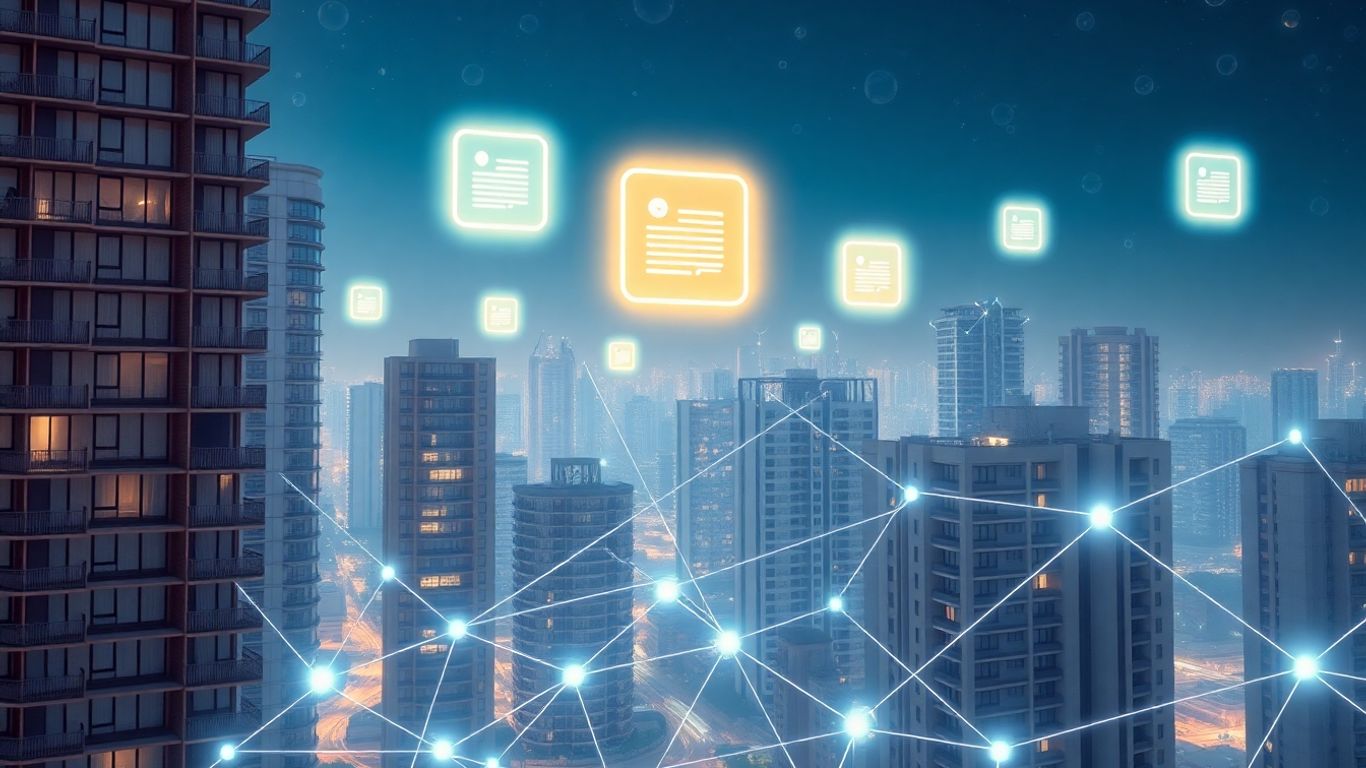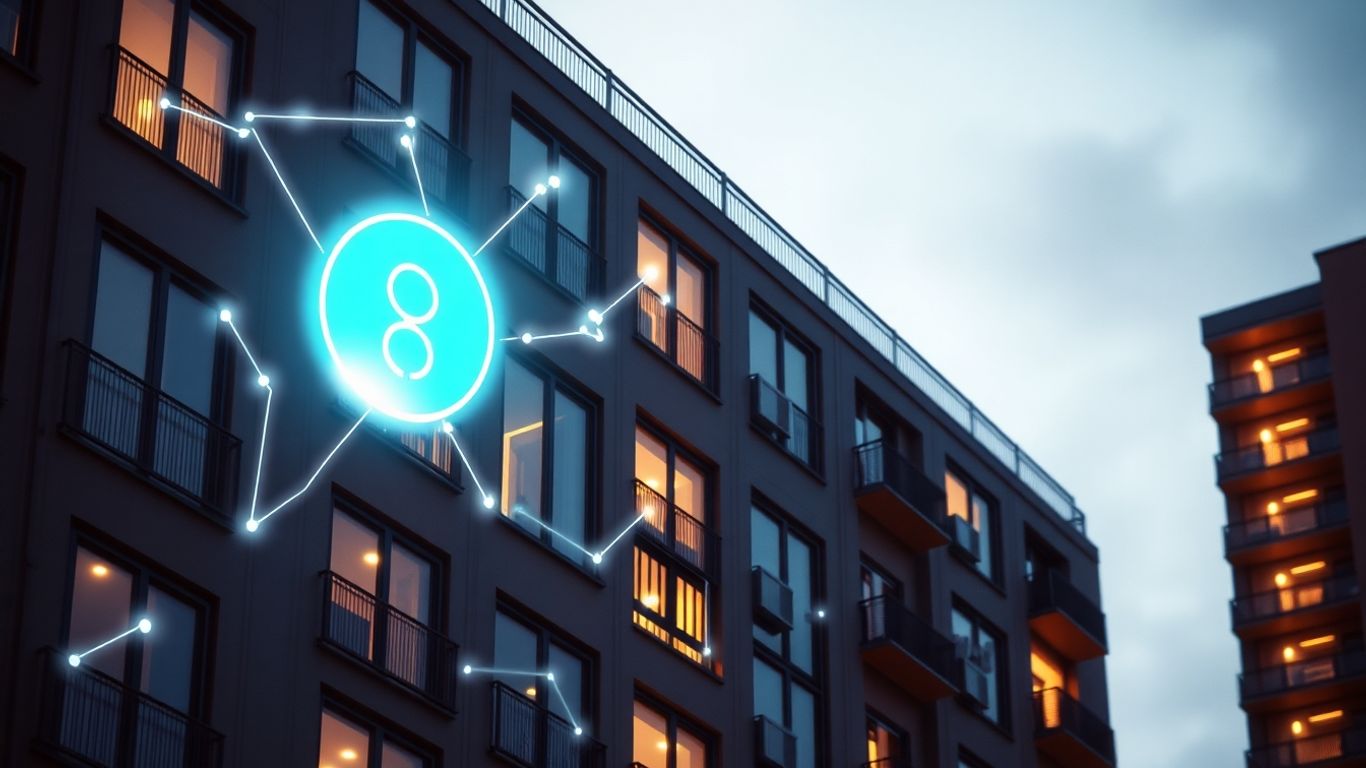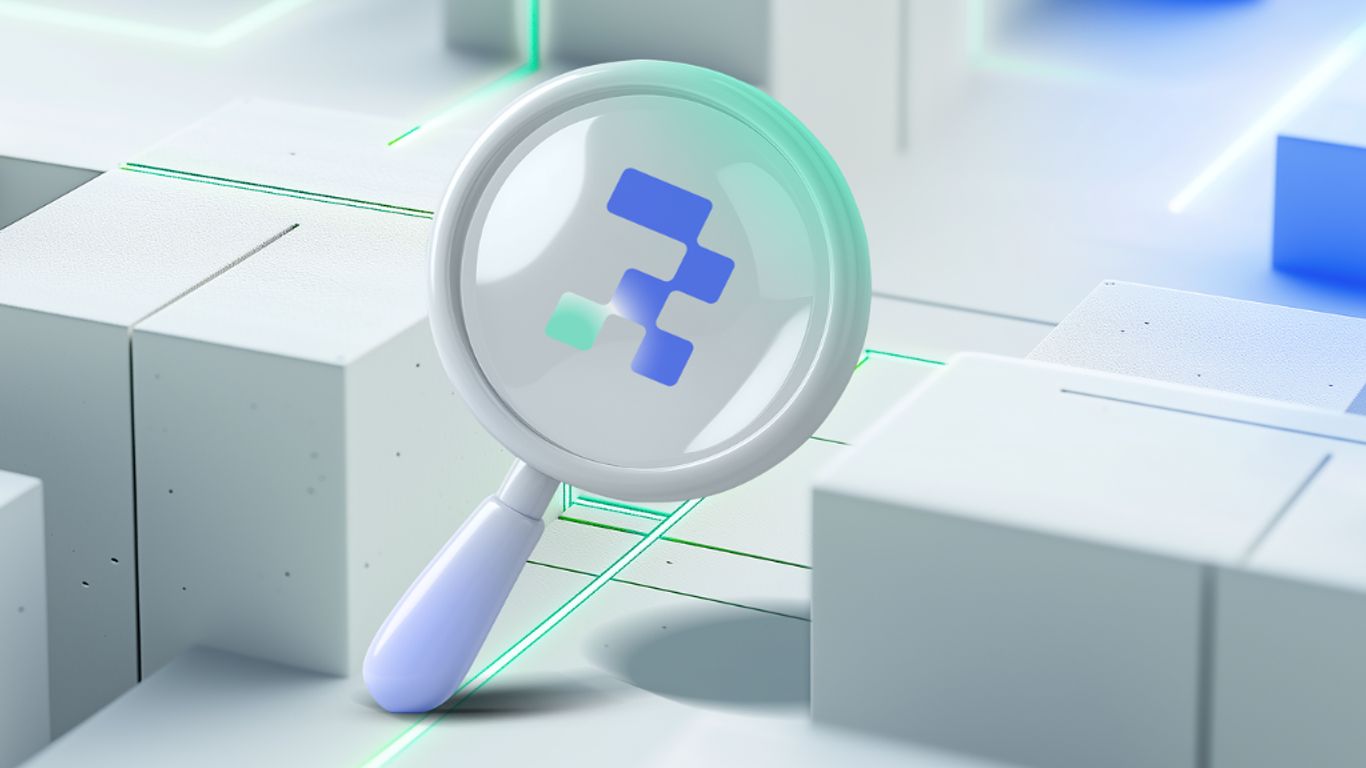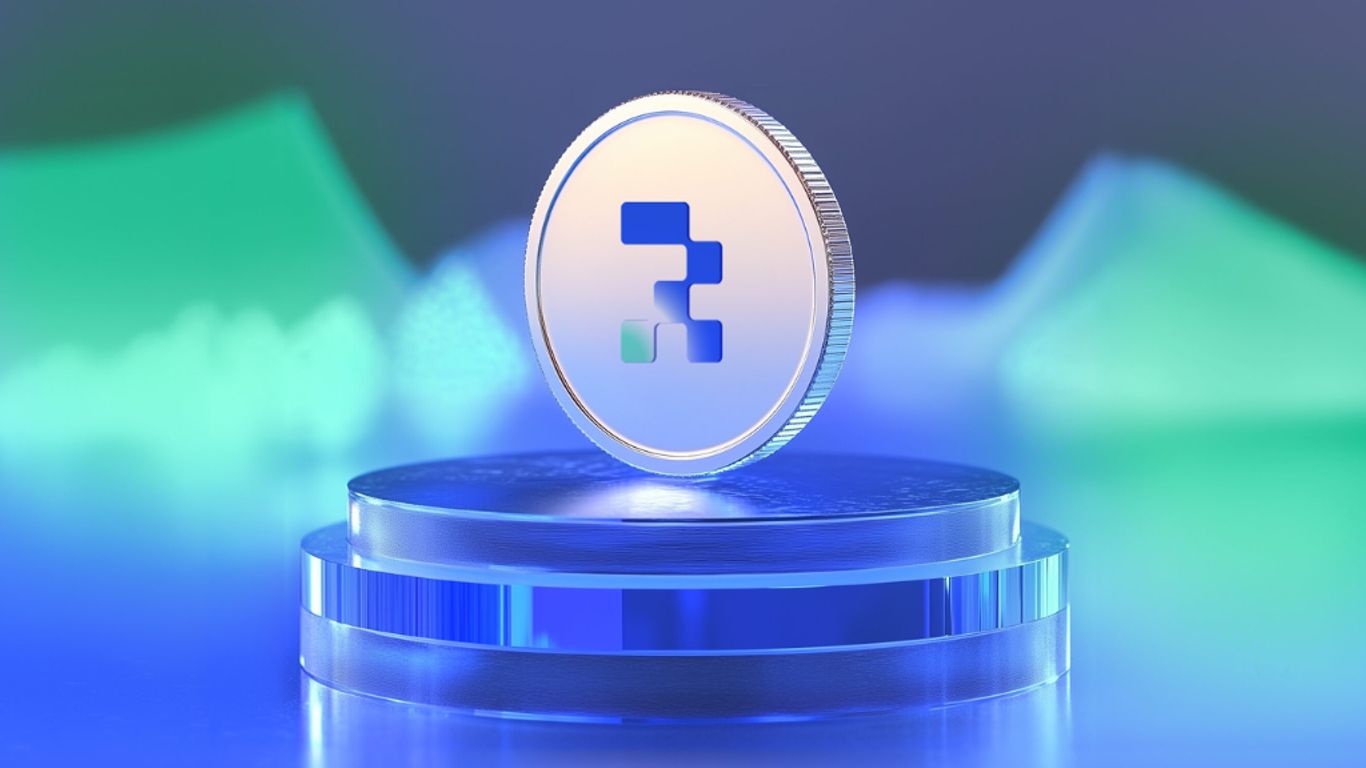Remember all those paper leases and endless back-and-forth for rent payments? It felt like a real hassle, didn't it? Well, things are changing. We're talking about using blockchain technology to make renting smoother. Think of it like a digital agreement that handles payments and rules automatically. It’s a big shift from how things used to be done, and it’s all about making the whole rental process simpler for everyone involved.
Key Takeaways
- Automating rent collection and security deposits through blockchain-based rental agreements means fewer late payments and clearer handling of funds.
- Smart contracts can automatically enforce lease terms, making things like rent payments or property upkeep more straightforward and reducing disputes.
- Keeping track of everything related to a rental property becomes much easier with blockchain, offering a clear history for both landlords and tenants.
- New ways to own property, like rent-to-own without needing a middleman or buying small pieces of a building, are becoming possible with this tech.
- While it's new, education and strong security are key to making sure everyone trusts and can use these blockchain-based rental agreements safely.
Revolutionizing Rental Agreements with Blockchain

The way we handle rental agreements is changing, and honestly, it's about time. For ages, renting a place has involved a mountain of paperwork, a lot of waiting around, and relying on a bunch of different people to get things done. But now, thanks to blockchain and smart contracts, we're seeing a big shift. Think of smart contracts as digital agreements that live on the blockchain. They're basically computer code that automatically carries out the terms of a rental contract when certain conditions are met. This means less hassle and fewer chances for things to go wrong.
Automated Rent Payments and Security Deposits
Remember the days of writing checks or setting up complicated bank transfers for rent? Smart contracts can handle that automatically. Once the contract is set up, rent can be sent directly from the tenant's digital wallet to the landlord's on a specific date. No more late fees because you forgot, and no more chasing down tenants. It's all programmed in. The same goes for security deposits. Instead of handing over a big chunk of cash that might get tied up, a smart contract can hold these funds securely. It's only released back to the tenant when the lease is up and all conditions are met, or to the landlord if there's damage or unpaid rent, as per the agreement. This makes the whole process much clearer and safer for everyone involved.
Streamlined Lease Enforcement and Termination
Enforcing the rules of a lease can be a real headache. What happens if rent isn't paid, or if a tenant breaks a specific rule? Smart contracts can be programmed to react automatically. For instance, if a rent payment is missed, the contract could trigger a notification or even a penalty, all without the landlord having to lift a finger. Similarly, if a lease needs to be terminated because of a breach of contract, the smart contract can manage that process, releasing the security deposit or initiating other agreed-upon actions. This takes a lot of the guesswork and potential conflict out of lease enforcement.
Enhanced Transparency and Record Keeping
One of the biggest wins with smart contracts is the transparency they bring. Because the contract lives on the blockchain, all parties involved can see the terms and the history of transactions. Every rent payment, every deposit, every action taken by the contract is recorded immutably. This creates a clear, undeniable record of everything that's happened. It’s like having a super-secure, always-available logbook for your rental property. This level of transparency builds trust and makes it much harder for disputes to arise or for anyone to claim they didn't know something. It's a game-changer for keeping things fair and square in the rental market.
The old way of doing things in real estate, especially rentals, was slow and often confusing. Smart contracts on the blockchain are changing that by making agreements digital, automatic, and visible to everyone involved. This means fewer mistakes, less paperwork, and a lot more trust between landlords and tenants.
Smart Contracts for Efficient Property Management
Beyond just signing leases, smart contracts can really take the day-to-day grind out of managing rental properties. Think about it: a lot of what property managers do involves repetitive tasks that are ripe for automation. This is where smart contracts shine, making things run smoother for everyone involved.
Automating Maintenance Requests and Tracking
Dealing with maintenance requests can be a headache. Tenants report an issue, the manager has to log it, find a repair person, schedule it, and then follow up. With a smart contract, a tenant could submit a request directly through the platform. The contract could then automatically notify the assigned property manager and even the maintenance team. It can also track the repair's progress, sending updates to the tenant and logging completion. This keeps everyone in the loop and makes sure things get fixed faster. It’s a big step up from lost emails or forgotten voicemails.
Secure Data Management and Reporting
Property management involves a ton of data – tenant info, lease terms, payment histories, maintenance logs, and more. Keeping all this organized and secure is a big job. Smart contracts, built on blockchain technology, offer a way to store this information in a way that’s both protected and easy to access when needed. All transactions and communications related to the property can be recorded on the blockchain, creating a clear, unchangeable history. This means property managers can get automated reports on rent collection, outstanding maintenance, or tenant communications without having to manually compile them. This kind of data management can really help in making better decisions about the property.
Ensuring Regulatory Compliance Automatically
Staying on top of local laws and regulations is another complex part of property management. Rules can change, and missing a requirement can lead to fines or legal trouble. Smart contracts can be programmed to adapt to these changes. For instance, if a new regulation affects security deposit rules or lease termination procedures, the smart contract could be updated to reflect these changes automatically. This helps property managers stay compliant without constant manual oversight. It’s like having a built-in compliance officer working 24/7. This technology can help streamline the entire rental process.
The ability of smart contracts to automate routine tasks and manage data securely means property managers can shift their focus from administrative burdens to more strategic aspects of their business, like tenant relations and property improvements. This not only boosts efficiency but also potentially reduces operational costs significantly.
Here’s a quick look at how these features can help:
- Faster Issue Resolution: Maintenance requests are logged and tracked automatically.
- Improved Record Keeping: All property-related data is stored securely and accessibly.
- Reduced Compliance Risk: Automated updates help adhere to changing regulations.
- Better Tenant Communication: Automated updates keep tenants informed about their requests and payments.
The Future of Property Transactions

Forget the days of endless paperwork and waiting around for weeks to close on a property. Smart contracts are here to speed things up, making property deals feel more like a quick online purchase than a marathon.
Escrow-Free Rent-to-Own Models
This is a pretty neat idea. Instead of a traditional rent-to-own setup that involves a bunch of middlemen and escrow accounts, smart contracts can automate the whole thing. Imagine paying your rent each month, and with each payment, you automatically gain a small piece of ownership in the property. It's all recorded on the blockchain, so there's no confusion about who owns what. This could really open doors for people who want to own a home but find traditional financing tough.
Fractional Ownership Opportunities
Buying a whole building might be out of reach for many, but what about owning a small piece of it? Smart contracts make this possible by letting people buy "tokens" that represent a share of a property. This means you could invest in commercial real estate or even a vacation home with just a small amount of money. It makes real estate investing way more accessible to everyday folks.
Automated Title Transfers and Reduced Fraud
Title fraud is a real headache in the traditional system. Records can get lost or messed with. Smart contracts, however, live on the blockchain, which is like a super secure, unchangeable digital ledger. When a property deal is done, the smart contract can automatically transfer the title. This makes ownership records incredibly reliable and way harder to mess with. It cuts down on the risk of fake documents and makes the whole process much safer and quicker.
Innovations in Smart Contract Technology
Integration with IoT Devices for Real-Time Adjustments
Imagine your rent automatically adjusting based on how much electricity you use. That's the kind of thing we're talking about with smart contracts and the Internet of Things (IoT). Think smart thermostats, water meters, or even occupancy sensors. These devices can feed data directly into a smart contract. If, for example, a property's energy consumption spikes due to a faulty appliance, a smart contract could trigger an alert for maintenance or even adjust the utility portion of the rent if the lease terms allow for it. This makes property management more responsive and can help catch issues before they become big problems.
AI-Powered Dynamic Lease Management
Artificial intelligence (AI) is set to make smart contracts even smarter. AI can analyze vast amounts of data, like local market trends, property values, and even tenant behavior patterns. This allows smart contracts to become dynamic. Instead of a fixed lease agreement, an AI-powered smart contract could adjust certain terms over time. For instance, it might suggest a rent increase based on market demand or offer a discount for long-term, low-maintenance tenants. This level of adaptive agreement management is a game-changer for both landlords and renters.
Enhanced Privacy and Security Features
While blockchain is known for transparency, privacy is also a big deal, especially with sensitive rental data. Future smart contract innovations will focus on keeping personal and financial information secure. Techniques like zero-knowledge proofs could allow a smart contract to verify information (like a tenant's income) without actually revealing the sensitive data itself. This means you can have the security and automation of smart contracts without compromising your privacy. It's about finding that balance between openness and protection.
The evolution of smart contracts is moving beyond simple automated agreements. We're seeing a shift towards contracts that can interact with the physical world through IoT, learn and adapt using AI, and protect user data with advanced privacy tools. This makes them more practical and trustworthy for everyday use in the rental market.
Addressing Challenges in Adoption
Okay, so we've talked a lot about how cool smart contracts for rentals can be. But let's be real, getting everyone on board isn't exactly a walk in the park. There are definitely some bumps in the road we need to smooth out before this becomes the norm.
Bridging the Knowledge Gap Through Education
One of the biggest hurdles is that most people just don't get how this stuff works. Think about it: the real estate world has been doing things a certain way for ages. Introducing blockchain and smart contracts is like trying to explain a smartphone to someone who's only ever used a rotary phone. We need to make learning about this technology accessible and straightforward.
Here's what needs to happen:
- Clearer Explanations: Forget the super technical jargon. We need simple guides, videos, and workshops that break down smart contracts and blockchain in plain English. Imagine explaining it like you're talking to a friend who's curious but not a tech whiz.
- Training for Professionals: Real estate agents, lawyers, and property managers need to be trained. They're the gatekeepers for many transactions, and if they don't understand it, they can't guide their clients effectively.
- Demonstrating Real-World Success: Showing off successful, secure rental transactions using smart contracts will build confidence. People need to see it working reliably before they trust it with their money and property.
The fear of the unknown is a powerful thing. When people don't understand a new system, they tend to stick with what they know, even if it's less efficient. Education is the antidote to this fear, building the trust needed for widespread adoption.
Strengthening Security Against Cyber Threats
Look, any time you're dealing with digital systems, especially those involving money and valuable assets like property, security is a massive concern. We've all heard the horror stories about data breaches and hacks. For smart contracts in rentals, this means protecting sensitive lease information and, of course, the actual rent payments.
- Robust Auditing: Smart contract code needs to be thoroughly audited by independent security experts before it's deployed. This is like getting a building inspected before you buy it – you want to catch any structural weaknesses.
- Secure Key Management: How users access and control their digital assets and contracts is super important. Losing your private keys could mean losing access to your rental agreement or funds, so secure, user-friendly methods for managing these are a must.
- Continuous Monitoring: Once a contract is live, it needs to be monitored for any suspicious activity. This isn't a 'set it and forget it' kind of deal. We need systems in place to detect and respond to potential threats quickly.
Ensuring Data Accuracy for Reliable Outcomes
Smart contracts are only as good as the data they work with. If the information fed into the contract is wrong, the automated actions will be wrong too. This is especially tricky in real estate, where data can be complex and sometimes inconsistent. Getting this right is key to making sure these contracts actually do what they're supposed to do, like automatically releasing a security deposit when a lease ends, provided certain conditions are met. We need to make sure that the data used for property transactions is accurate and verifiable.
- Oracles for Real-World Data: Smart contracts often need information from the outside world (like a tenant's payment confirmation or a maintenance completion report). We need reliable "oracles" – trusted sources that feed this external data into the blockchain accurately.
- Data Validation Processes: Before data even gets to the smart contract, there should be checks in place. This could involve multiple sources confirming the same piece of information or using established data providers.
- Dispute Resolution Mechanisms: Even with the best data, disagreements can happen. Having clear, pre-defined ways to resolve disputes when data conflicts arise is important. This might involve a third-party arbitrator or a specific process outlined in the contract itself.
Benefits of Blockchain-Based Rental Agreements
Using blockchain for rental agreements really shakes things up, and honestly, it's about time. The old ways of doing things in real estate can be slow and kinda messy. But with smart contracts on a blockchain, things get a whole lot smoother.
Increased Efficiency and Reduced Costs
Think about all the paperwork and back-and-forth that usually comes with renting a place. Smart contracts cut through a lot of that. They can automatically handle things like rent collection and security deposit releases once certain conditions are met. This means less manual work for landlords and property managers, and fewer chances for mistakes. Plus, by automating these tasks, you often don't need as many middlemen, like certain agents or administrators, which can save everyone some cash.
- Automated rent collection: No more chasing payments.
- Faster security deposit handling: Funds released automatically when the lease ends, assuming no damages.
- Reduced administrative overhead: Less time spent on manual data entry and tracking.
The automation built into smart contracts means that routine tasks can be completed without human intervention. This not only speeds up processes but also frees up valuable time for property managers to focus on more important aspects of their job, like tenant relations or property upkeep.
Enhanced Transparency and Trust
One of the biggest wins here is transparency. Because all the details of the rental agreement are recorded on the blockchain, everyone involved – the tenant, the landlord, even other stakeholders – can see the same information. This shared ledger makes it really clear what the terms are and what's happening with payments and other contract events. It builds a lot more trust because there's less room for misunderstandings or disputes when everything is out in the open and verifiable.
- Clear record of all transactions: Every payment and agreement milestone is logged.
- Immutable history: Once recorded, data can't be easily changed, preventing disputes over past events.
- Shared access to information: All authorized parties see the same, up-to-date contract status.
Global Accessibility for Cross-Border Transactions
This technology doesn't really care about borders. If you're renting out a property to someone in another country, or if you're an investor looking at properties overseas, blockchain can simplify things. It provides a standardized way to manage agreements and payments, regardless of where the parties are located. This opens up new possibilities for both tenants and landlords on a global scale, making international property rentals much more straightforward than they used to be.
Wrapping It Up
So, it looks like smart contracts are really starting to change how we handle rental properties. We've seen how they can make things like rent payments and lease agreements way smoother, cutting down on all that annoying paperwork and potential for mix-ups. It’s not just about making things easier for landlords and renters, either; investors are getting in on the action too, with new ways to own parts of properties. While there are still some hurdles to jump, like making sure everyone understands the tech and keeping things super secure, the direction is pretty clear. Smart contracts are becoming a pretty big deal in real estate, and it’s going to be interesting to see how they keep evolving and making property management and ownership more straightforward for everyone involved.
Frequently Asked Questions
What exactly is a smart contract for renting a place?
Think of a smart contract like a super-smart digital agreement for renting. Instead of paper, it's code on a special computer network called a blockchain. This code automatically handles things like collecting rent on time and making sure security deposits are handled fairly. It's like having a robot landlord and tenant who always follow the rules.
How does this make renting easier for landlords?
Landlords can save a lot of time and hassle. Rent payments can be set up to happen automatically, so no more chasing people for money! Also, if there's a problem, like a tenant not paying, the contract can automatically start the steps to fix it or end the lease, all without a lot of paperwork or waiting around.
Are smart contracts safer for tenants?
Yes, they can be! Your rent payments are recorded clearly on the blockchain, and security deposits are held safely by the contract until the lease is up. This means there's less chance of arguments about payments or deposits because everything is tracked automatically and transparently.
Can smart contracts help with fixing things in the rental property?
Definitely! A tenant could report a leaky faucet using the smart contract. The contract can then automatically tell the landlord or property manager and keep track of whether the repair is getting done. It makes sure that maintenance issues are handled faster and everyone knows what's happening.
Is it hard to use these smart contracts if you're not a computer whiz?
Right now, it might seem a little tricky, but people are working hard to make it super simple. Imagine apps that look like the ones you use every day. The goal is for anyone to be able to use them easily, without needing to understand complicated computer code.
What happens if something goes wrong or there's a disagreement?
Smart contracts are designed to follow the rules written in their code. If a problem comes up that the contract can't automatically solve, there are still ways to sort things out. Sometimes, the contract can even help with figuring out who is right based on the rules, or it can hold funds until a person or group decides how to solve the issue.




